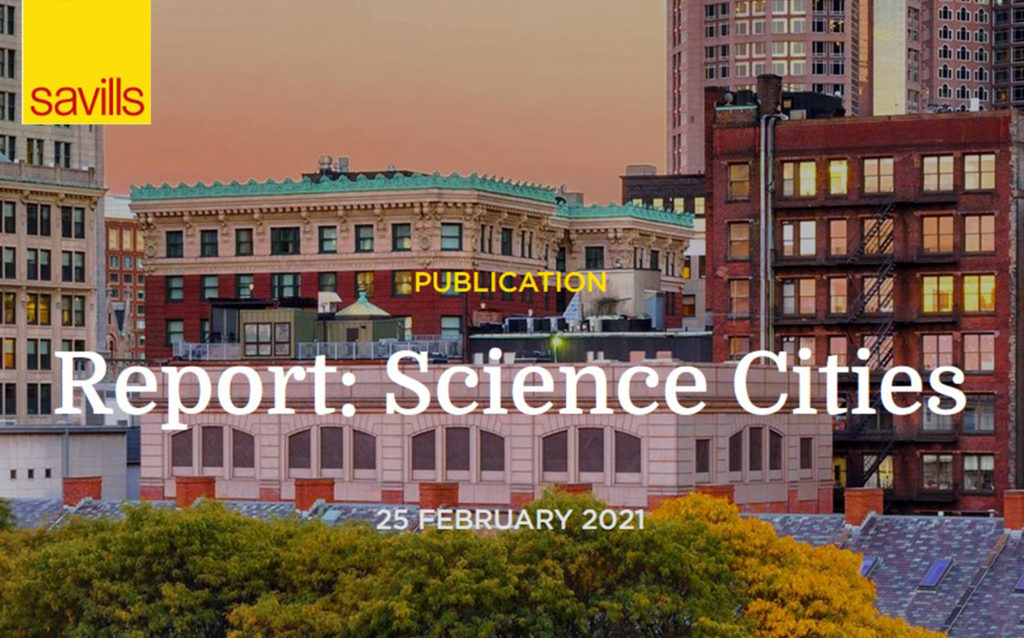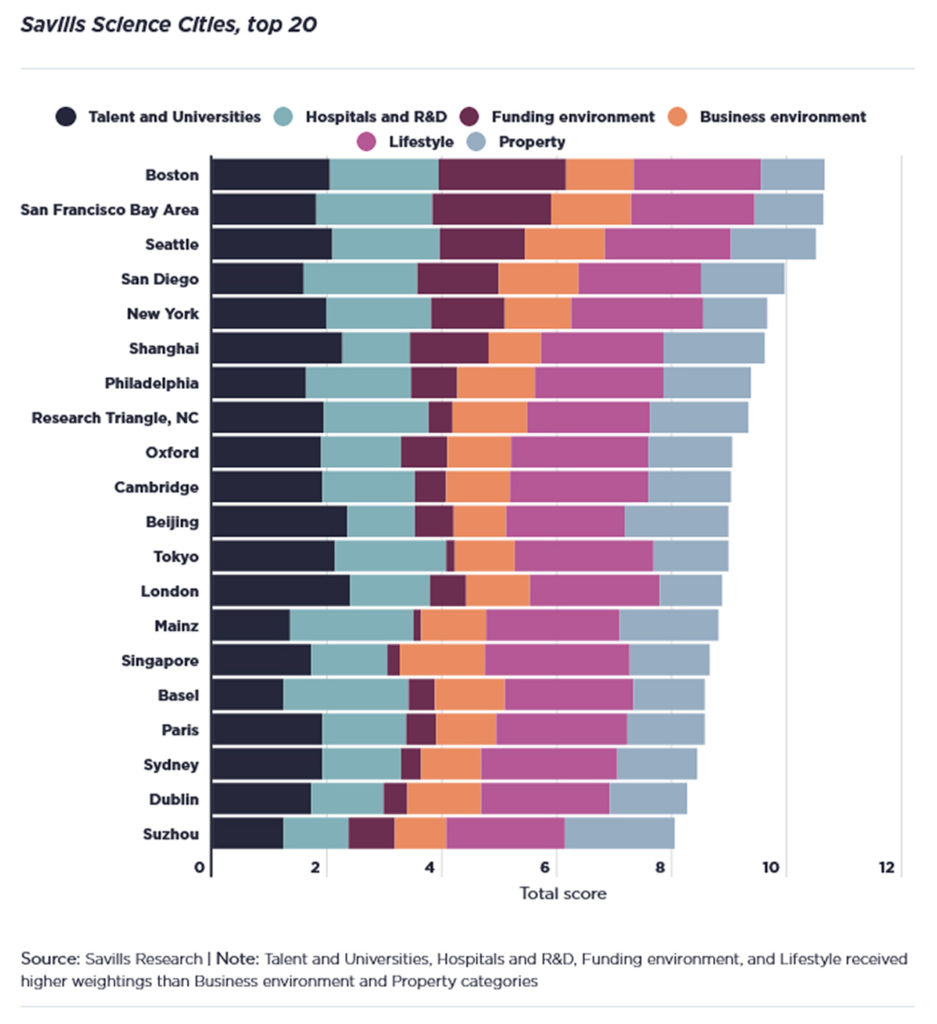Life science headquarters, biomedical labs, and top-ranked universities seem to be around every other corner in Boston. It should come as no surprise that all this activity has propelled the city to the top of Savills’ Science Cities list.

The pandemic has added more fuel to the already strong life sciences sector in the last year. Record funding flowed into the industry; venture capital rose 69% last year. Boston led the way as a “global knowledge hub and funding magnet” followed by a host of other US cities as well as international metros like Oxford and Cambridge, Shanghai, Beijing, and Tokyo, among others.

According to a July 2020 BioSpace Salary Report, the average life science salary in Massachusetts was up 5.5% from 2019 and, at $137,000, was the highest in the country beating out the Bay Area.
The growth in the local and global life science industry has been a boon to Boston’s commercial real estate market. LandVest’s Emmet Logue and Bill Zagata looked at how this has translated across the metro area:
“The Greater Boston life science market for leasing, acquisition, and development strengthened significantly during 2020 and into 2021. The Boston area benefits from world-class universities and hospitals, a highly educated workforce, and consistently high levels of federal funding for life sciences.
While the Kendall Square/Cambridge market continues to be one the most sought-after locations for life science companies in the U.S., persistent high rents and extremely low vacancy are pushing companies to look for opportunities in the Boston suburbs. Watertown, Waltham, and Lexington are attractive for developers looking to reposition existing office and industrial buildings for life science use as well as develop new buildings in existing office parks and life science campuses. Over the last several years, new life science development in Boston accelerated in the Seaport and South Boston. Somerville is experiencing a boom in new life science development in the Assembly Row, Boynton Yards and Cambridge Crossing neighborhoods. Alexandria Real Estate Equities and King Street Properties continue to aggressively acquire development sites and existing improved properties in and around Boston for new development or conversion to life science use.
Despite the pandemic’s negative impacts on the local office and retail commercial retail estate markets, the Boston life science market is forecasted to strengthen throughout 2021 and for the foreseeable future.”

To find out more about the life science market in the Greater Boston area, contact Emmet and Bill with our Consulting team.
